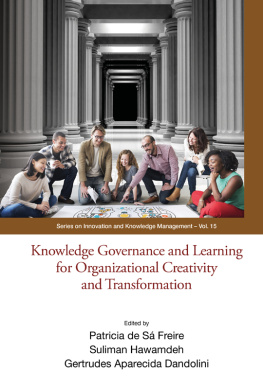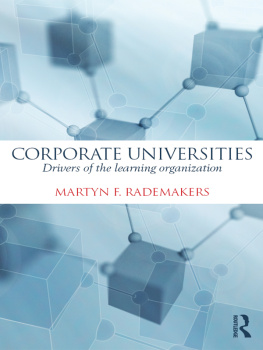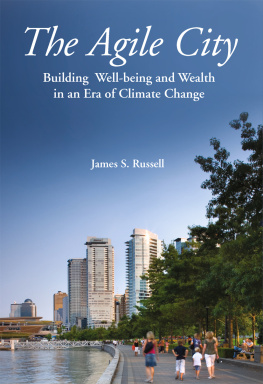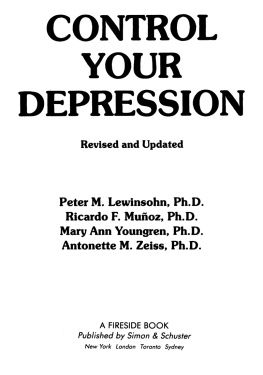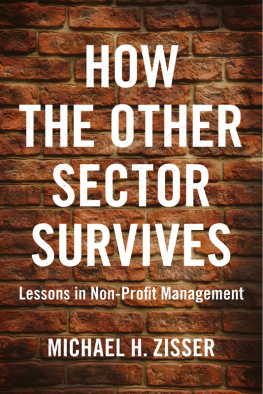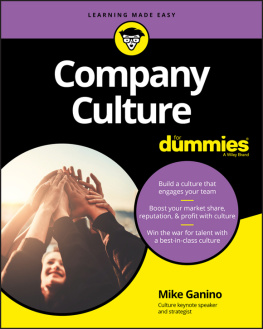Praise for the Winner of the Edwin G. Booz Award
for the
most insightful, innovative management book of the year
The Living Company is eminently readable. The style is
conversational and jargon-free. While it is reflective and
thoughtful, it is always relevant, meaningful and deals with
issues of central significance to organisations today.
For those interested in the bigger picture, this book provides a
wonderful landscape.
Doron Gunzburg, Monash Business Review
This is a thoughtful, reflective and philosophical book. It
does not prescribe quick fixes. The author draws on rich
imagery from agriculture, horticulture, psychology and
nature. For example, he explores how the blue tit learned to
pierce aluminium milk bottle tops, while the robin didnt.
The organizational issue from this is how learning is
distributed and passed on.
The authors experience and reflection as articulated in this book
provide a valuable resource for further insight and understanding
of how organisations survive, learn and flourish.
David Coughlan,
Leadership & Organisation Development Journal
Arie de Geus is an international figure who has not only
been a key influence on scenario planning, but is also credited
with originating the concept of the learning organisation.
The world, or at least part of it, is ready to hear the message
that profits are only a symptom of success and not an end in
themselves. Many people want to believe in the wisdom of
power-sharing in organisations. Others long for a move away
from individualism to a greater emphasis on the importance
of community. But the book also sells because it is based on
experience and is incredibly well written by a man whose
conversation and manner are compelling.
Jane Pickard, People Management
Reading The Living Company is a refreshing experience in a
period when conventional wisdom emphasises short-term
returns on capital; it should be read by all those who think
that there is more to business than that.
Russell Sparkes, RSA Journal
The Living
Company
Growth, Learning and Longevity
in Business
Arie de Geus

This paperback edition first published
by Nicholas Brealey Publishing in 1999
Reprinted in 2001, 2002, 2003, 2007
3-5 Spafield Street | 20 Park Plaza, Suite 1115A |
London | Boston |
EC1R 4QB, UK | MA 02116, USA |
Tel: +44 (0)20 7239 0360 | Tel: (888) BREALEY |
Fax: +44 (0)20 7239 0370 | Fax: (617) 523 3708 |
www.nicholasbrealey.com
First published in hardback in 1997
Longview Publishing Limited 1997, 1999
The right of Arie de Geus to be identified as the author of this work
has been asserted in accordance with the Copyright, Designs and
Patents Act 1988.
ISBN-13: 978-1-85788-185-1
ISBN-10: 1-85788-185-0
British Library Cataloguing in Publication Data
A catalogue record for this book is available from the
British Library.
All rights reserved. No part of this publication may be reproduced,
stored in a retrieval system, or transmitted, in any
form or by any means, electronic, mechanical, photocopying, recording and/or
otherwise without the prior written permission of the publishers. This
book may not be lent, resold, hired out or otherwise disposed of by
way of trade in any form, binding or cover other than that in which it
is published, without the prior consent of the publishers.
Printed in India by Gopsons Papers Ltd, Noida.
The ideas and views expressed in this book are those of the author and
not of any organisation with which he is associated.
Contents
Foreword Peter M. Senge
I T WAS THROUGH A RIE DE G EUS, WHOM I MET OVER 15 YEARS ago, that I first became seriously acquainted with the concepts of organizational learning. That meeting began the journey of a lifetime.
He introduced me to the famous study done at Royal Dutch/Shell, where he was the coordinator of planning worldwide, which found that the average life expectancy of Fortune 500 firms, from birth to death, was only 40 to 50 years. The study also found many companies over 200 years old. Arie convinced me that most corporations die prematurelythe vast majority before their 50th birthday. Most large corporations, he said, suffer from learning disabilities. They are somehow unable to adapt and evolve as the world around them changes.
More importantly, he got me thinking for the first time about the connections between low life expectancy and low vitality of firms while they are still operating. Both are symptoms of the overall health of the enterprise. Like individuals who are unhealthy and can expect an early demise, most large, apparently successful corporations are profoundly unhealthy. The members of these organizations do not experience that their company is suffering from low life expectancy. They experience most corporate health as work stress, endless struggles for power and control, and the cynicism and resignation that result from a work environment that stifles rather than releases human imagination, energy and commitment. The day-to-day climate of most organizations is probably more toxic than we care to admit, whether or not these companies are in the midst of obvious decline.
This is a book of practical philosophy. It has been my experience that extraordinary practitioners like Arie can make unique contributions to management thinking, but that their contributions are rarely acknowledged. Unlike academics who write about what they have thought, practitioners think about what they have lived through. Because the source of their thinking is experience rather than concepts, they show how sometimes the most profound ideas are the simplest.
At the heart of this book is a simple question with sweeping implications: what if we thought about a company as a living being?
This raises the obvious question: what is the alternative view of a company if we do not see it as a living being? The alternative view is to see a company as a machine for making money.
The contrast between these two viewsmachine for making money versus living beingilluminates a host of core assumptions about management and organizations.
I believe that almost all of us adopt the machine assumption without ever thinking about it. In so doing, we probably mould the destiny of individual organizations far more than we imagine.
For example, a machine is owned by someone. We are used to thinking of companies in exactly that way: they are owned by owners, usually distinct from the companys members. But what does it mean to say that a living being is owned by someone? Most people in the world would regard the idea that one person owns another as fundamentally immoral. Is it no less problematic with regard to a company?
A machine exists for a purpose conceived of by its builders. Again, that is the conventional view of a company: its purpose is to make as much money as possible for its owners. But living beings have their own purpose. This inherent purpose can never be completely supplanted by the goals of another, even though a living being might respond to others goals. What happens to the life energy of a living being when it is unable to pursue its purpose?
To be effective, a machine must be controllable by its operators. This, of course, is the overarching
Next page

